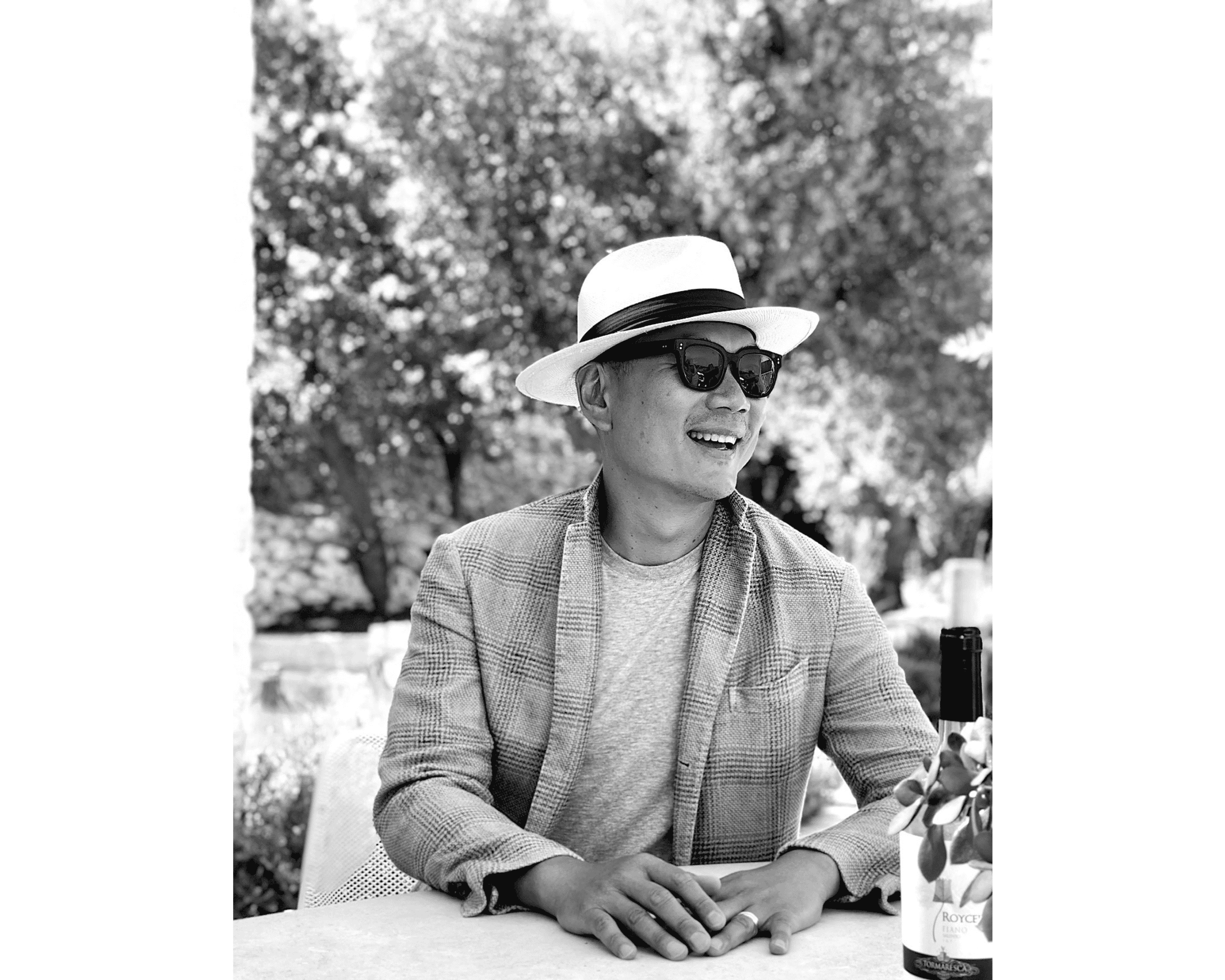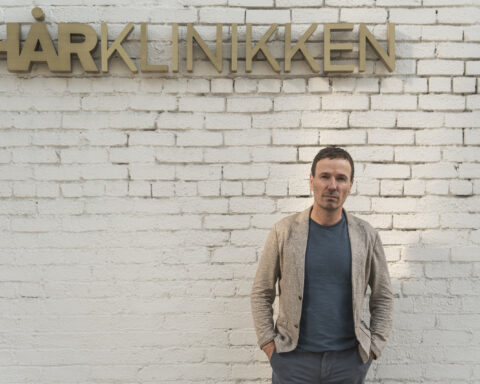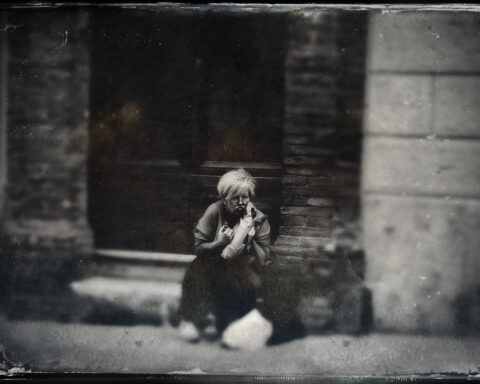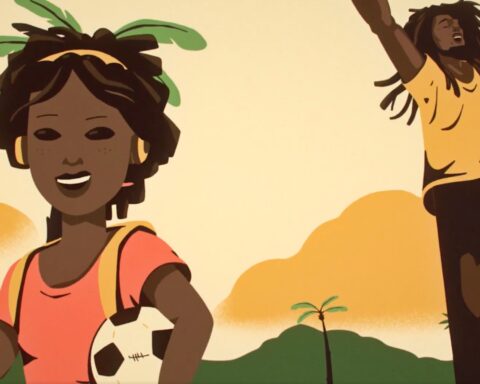William Li’s eye for life’s pleasures has taken him to the peak of the glamorous worlds of publishing and design, breaking new ground with long and distinguished stints at two of America’s most established and stylish brands.
He was the first ever Asian American publisher at Condé Nast, taking a senior role at some of the company’s most prestigious titles including The New Yorker, Men’s Vogue and Portfolio. Then, after 15 years at the media giant, he moved to Ralph Lauren Home, initially leading the brand’s marketing and communications team before being promoted to global brand president.
Now for his third act, William is turning his attention to a new type of interior design: looking inside ourselves as part of the booming the wellness industry. Born in New York to Chinese parents, he feels the time has come to build his own brand based on his values and heritage. Since 2019, he has co-hosted the PBS series ‘Lucky Chow’ exploring Asian American culture through the lens of food. Then this month, which is fittingly but coincidentally AAPI Heritage Month, he launched The Hao Life (‘hao’ means ‘good’ in Chinese) alongside his ‘Lucky Chow’ co-host Danielle Chang.
The Hao Life offer superblends of plants and herbs with healing qualities, inspired by the traditional Chinese medicine philosophies and techniques passed down to the founders by their ancestors. (You can learn more about the ingredients used by the brand and throughout Chinese medicine in our supporting article.)
And here, William explains how his new adventure has been inspired by a shift in priorities as he realigns his belief of what a ‘good life’ really means.

William Li
We’re very interested in your career path, as it aligns with much of what we focus on here at Mr Feelgood, covering both outer and inner style. Can you tell us how your time in the publishing and style worlds have led you to where you are today?
I am a monogamous and loyal person, and I really only worked for two companies my entire life. I worked for Condé Nast for 15 years, where I learned everything about media and business. I worked with incredible people there, it was an incredible training ground, and has always been the epitome of excellence in magazine media. But towards the end of my career there, in about 2010, I could see things changing. Not only was the business changing, but I was not personally getting very much satisfaction anymore. It became less of a creative profession and much more of a fight. Everything started to feel commoditized. And I simply didn’t want to do that anymore. I knew I had to do something else, but what that something else was, I had no idea.
Then out of the blue, I got a call from the nice people at Ralph Lauren. There was a position that had opened up as vice president of PR and marketing of the home division. Never in a million years did I think I would ever do PR, and at first it felt like I was giving up a bigger job. But there was an amazing woman there at the time, Jackwyn Nemerov, who was essentially my boss’s boss and was influential in my hiring, who said to me, “I’m not hiring you for the job that’s available now. I’m actually hiring you for the job that you don’t know exists, three years or four years from now.” That was very compelling. So I took the leap and it ended up being a really great decision, and in my last four years at Ralph I was the global brand president, so it ended up turning out exactly the way she said.
I use this example a lot with my friends who are in their 40s, or early 50s, who are kind of burnt out doing what they’re doing. They want to make a change, but they’re afraid. I tell them that sometimes you have to take what feels like a step back, and that allows you to take 10 steps forward. And I think people shouldn’t be afraid of doing that. And that’s not just professional decisions, I think it applies to life as well. Sometimes you have to lose a friendship in order to grow as a person, for example. I think too many people are hung up on fear. Fear is a very common human emotion, and it dominates so much of our thinking. It’s the obstacle to change.

William filming ‘Lucky Chow’
So how have these experiences led you to launch your new venture, The Hao Life?
There’s a guy who was a very senior executive at Condé Nast, called David Carey, who brought me into the company and ended up being an incredible mentor and friend. We had dinner about three years ago, when I was about to turn 50, and he said, “Every time we have dinner, you’ve been hinting that you’re ready for something new, and you never seem to allow yourself to go there. So why is that?”
He then told me two important things, which I still value. He said, “What are you doing about your QTL? Your Quality Time Left. The time you have left where you are passionate, where you are healthy, where you’re firing on all cylinders, while your network is hot. When you can exploit that and do something you really love.”
The second thing he said to me was, “There comes a time in your life where it is no longer important to be important. And when you get to that point, you will be set free completely.” What he said was absolutely right, and I had got to that point over the previous few years. Because how you define yourself is also part of what prevents change. Being a senior executive in New York, you get frustrated because you’re seated in the second row of some fashion show – and it really doesn’t matter.
So I ended up here because I wanted to do something creative, and I wanted to tell stories that were my own. To tell stories about my Chinese heritage in a high quality way. So that’s why I teamed up with my partner in The Hao Life, Danielle Chang, for our PBS show ‘Lucky Chow’. And then with The Hao Life, I wanted to do something that was about my next phase in life, from a wellness perspective. I no longer define success as how busy my calendar is. And I think, particularly after the last year, my number one priority is my health and my wellness and to grow old with vitality.
I grew up with traditional Chinese herbal remedies which kept me healthy and safe. These were remedies that my grandmother and my mother would make for us in the kitchen, herbs and foods that for thousands of years had been part of the traditional Chinese wellness repertoire. And I wanted to figure out a way with Danielle to modernize it and bring it to a broader audience.

The Hao Life products
Tell us more about your heritage, and what you learned from your mother and grandmother that influenced The Hao Life?
I’m a first generation American. My mom moved here from Hong Kong and my dad from Havana, Cuba, where he was part of the huge Chinese community there, both in the early 1960s. They met in New York, had me and my sister, and I grew up in Chinatown. My dad unfortunately passed away when I was three years old, so my 78-year-old grandmother moved from Hong Kong to New York to help raise us. And she was very traditional, from the cooking to the herbal remedies she would make for us, and also the philosophy of family and respecting your elders and what the good life really means, and all of that is so ingrained in who I am.
For example, there’s a root called astragalus root which is incredible for boosting immunity, particularly in your respiratory system. So once a week during cold season, she would make a broth with astragalus, red dates which have incredible healing properties, and goji berries which are also very good for your immunity.
Chinese medicine is not about dealing with the symptoms when you’re sick, it’s about preventing the symptoms. We hear about yin and yang, which is basically about balance. Your body’s going to have hot sides and cool sides, and you’re most healthy when the hot and cold are balanced, when acidity and alkalinity are balanced. It’s all about balance, and that’s what The Hao Life is about. These are formulas that have existed for thousands of years, but we’ve added modern day adaptogenic herbs to them to make them stronger.
I lost my mom about 14 years ago, and whenever I get sick I always crave the knowledge of all the things she did, that I never paid attention to as a child and never wrote down. But I knew these formulas worked and were a huge part of our family’s wellness growing up. Danielle felt the same way, so we wanted to trace our cultural heritage back a little bit, relearn all the things we should have been paying attention to, then take that knowledge and bring it to a broader audience in a form that is modern and easy. So Hao Life is just two tablets in the morning and two at night.

William Li
Can you explain a little more about the product and its benefits?
All the formulas are focused on the five essential Chinese organs in the health ecosystem. So it’s the heart, the lungs, the liver, the kidneys, and the spleen – the spleen being the spleen ecosystem, which includes the intestines, the pancreas and the stomach for gut health.
We have something for respiratory immunity, we have something for detoxification of the liver, we have something for improved gut health to improve regularity and digestion, and we have something called Mind Unwind, which is to calm your nervous system and help you be a little bit more relaxed during the day and when you hit the pillow at night.
But the two formulas that actually started this company are Got Game and Balancing Act, and those are the two formulas that really got us thinking about our next stages in life. Danielle is going through menopause and I had started going through something called andropause, which is the male version of menopause, otherwise known in the Western world as low testosterone. But it’s not just low testosterone, it’s really that your kidneys are no longer functioning with as much energy as they used to. And your kidneys and the adrenal glands are the center of sexual function as well as reproductive function. So we wanted to make a formula that would help men deal with this unspoken phase of their lives. Men like to take Viagra and feel like everything is fine. But in fact, taking Viagra is probably the worst thing you can do for your health and heart. The key ingredients of the male formula are things like eucommia bark, which strengthens bones and muscles, helps circulate blood to the lower extremities and also has libido enhancing benefit. It also includes cinnamon bark, which is amazing for cardiovascular health. And goji berry, an incredible superfood for increasing energy.
What is interesting about this formula is it was started in 17th century China by aristocratic older men who were trying to keep up with all their concubines. So we’re saying it’s going to give you support and stamina in all areas of your life… and buying a bottle of Got Game is far cheaper than buying a Ferrari!
Learn more about The Hao Life here.











